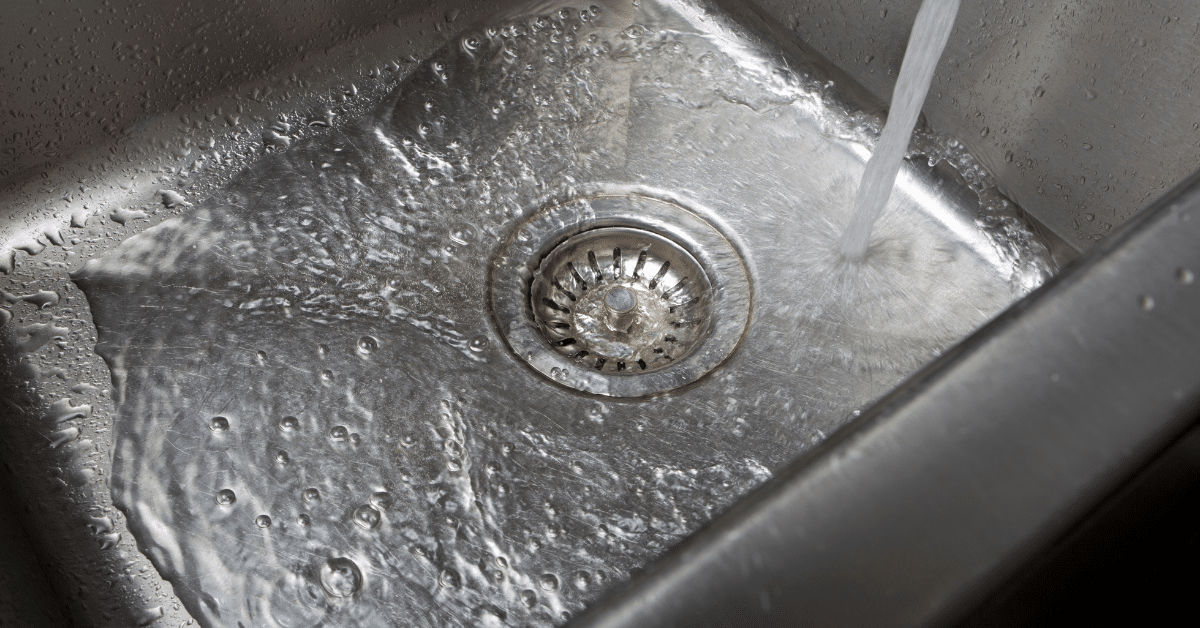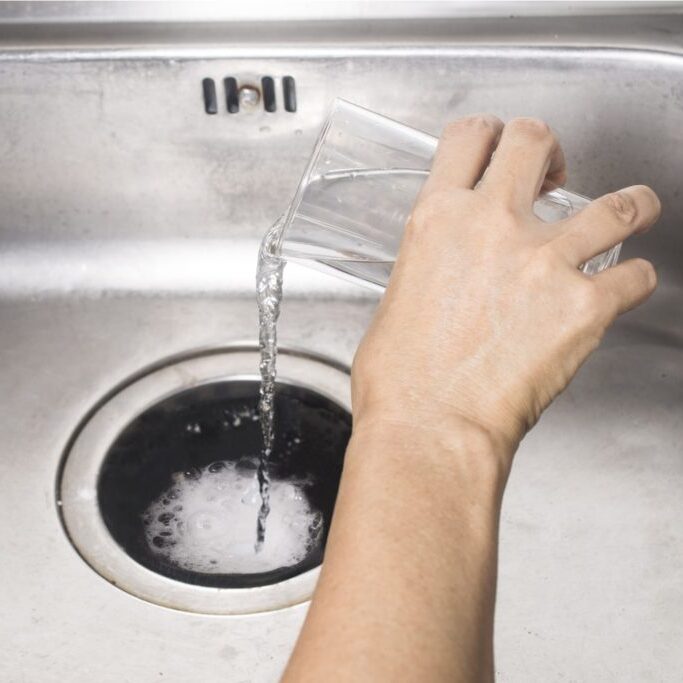Practical Ways To Fix Slow-Draining Sink Problems
Practical Ways To Fix Slow-Draining Sink Problems
Blog Article
Are you currently hunting for advice about Three Common Ways to Fix a Slow Drain?

Intro
We've all existed: You're cleaning your teeth or washing your hands, and you observe the water merging in the sink. As opposed to rapidly swirling away, it lingers, turning your once-refreshing morning regimen right into a small overload scene. A slow-draining sink isn't simply aggravating; it's usually a sign of bigger plumbing problems prowling underneath the surface area. The bright side is that the majority of slow-draining sinks can be taken care of with a little expertise, a couple of standard devices, and some persistence. All set to tackle this task head-on? Let's roll up our sleeves and dive right in.
Understanding the Root Causes Of a Slow-Draining Sink
Prior to you start poking around in your pipes, it assists to recognize what might be causing the slowdown. Understanding the root cause makes it less complicated to pick the appropriate repair.
Common Wrongdoers Behind Slow Drain
So, what's obstructing things up? Commonly, it's a blend of day-to-day debris-- believe hair, soap residue, tooth paste residue, and leftover food fragments. Over time, these tiny bits accumulate and hold on to the pipeline walls, slowly tightening the flow and making it harder for water to go through. In many cases, natural resource from difficult water can also add to the substance, developing the excellent storm for persistent blockages.
When is it Time to Do Something About It?
If you observe the water draining slower than usual, it's a good concept to step in sooner as opposed to later on. Waiting too long can lead to finish clogs, unpleasant odors, and even pipeline damage. If the water takes more than a couple of secs to clean out after switching off the faucet, consider it a red flag and prepare to place on your DIY hat.
Tools and Materials You'll Require
The right devices make all the difference. The good news is, you will not require a totally equipped plumber's van to finish the job.
Crucial Tools for DIY Fixes
A bettor is your best starting point. A small, sink-sized plunger develops suction that can dislodge minor obstructions. For even more consistent obstructions, a drain snake (occasionally called a plumbing's auger) functions wonders. A pair of handwear covers, a flashlight, and maybe a set of safety goggles are likewise useful.
Advised Cleansing Solutions
Mild recipe soap and hot water can help break down oily build-up. A mixture of baking soda and vinegar is a reliable natural remedy, and enzymatic cleaners provide an even more environmentally friendly strategy. Maintain chemical drain cleaners as a last resource, as they can be extreme on your pipes.
Security First: Preventative Measures and Preparations
Before you launch into unclogging setting, think about safety. You're taking care of possibly unclean water and particles, so slip on a set of gloves. If you're utilizing chemical cleaners, guarantee the space is well-ventilated and follow the instructions on the tag.
Safety Gear and Work Area Setup
Set some old towels or dustcloths around the sink location to capture sprinkles. Clear away any type of things that might enter your means, like soap dispensers or toothbrush holders. Make sure you have great lighting-- grab a flashlight if needed.
Step-by-Step Overview to Fixing a Slow-Draining Sink
Currently, let's get into the nitty-gritty. This step-by-step process will direct you through straightforward methods to recover your sink's drain.
Action 1: Remove and Clean the Stopper
Frequently, the stopper (that tiny plug you push down to obstruct water) is the initial offender. Remove it carefully and clean off any type of hair or gunk caught around its base. Wash it extensively before putting it back in place.
Step 2: Make Use Of a Plunger to Dislodge Debris
Got that bettor ready? Setting it over the drain and provide it a couple of firm pumps. The concept is to create suction that can loosen any kind of clog. If you see littles debris floating up, you're on the right track.
Step 3: Try a Drainpipe Snake or Wire Hanger
If the plunger doesn't suffice, it's time to draw out the drainpipe serpent. Delicately feed it into the drain and twist as you go. You might feel some resistance-- that's most likely the clog. Maintain turning and pulling up until you remove the blockage. If you do not have a drainpipe snake, an aligned cord wall mount can operate in a pinch.
Step 4: Apply a Do It Yourself Drainpipe Cleanser
A natural cleaner made from baking soft drink and vinegar can break down residual gunk. Put half a mug of baking soda into the drain, adhered to by half a mug of vinegar. Let it fizz for around 15 mins, after that flush with hot water. This chain reaction often does wonders for small blockages.
Step 5: Reconstruct and Evaluate the Sink
Placed every little thing back together and run the tap. Does the water currently swirl away at a respectable rate? If yes, offer yourself a pat on the back. Otherwise, do not misery-- there are still a couple of even more dress up your sleeve.
Different Approaches for Stubborn Clogs
Not all blockages are produced equal. If your sink still refuses to work together, take into consideration these different solutions.
Sodium Bicarbonate and Vinegar Technique
We currently touched on this, yet it deserves keeping in mind again. This mild, environmentally friendly technique is more secure than chemical cleaners and usually fairly reliable.
Enzymatic Drainpipe Cleaners
Enzyme-based cleaners make use of natural microorganisms to absorb raw material. They're an outstanding option if you're looking to avoid harsh chemicals. Simply bear in mind, they might take a bit longer to function their magic.
Chemical Drain Cleaning Company: Pros and Cons
Chemical cleansers can blast via hard clogs quickly, yet they're not without downsides. They can produce heat and fumes, damage pipelines if made use of excessively, and posture ecological threats. Use them sparingly, and always comply with the directions very carefully.
Safety Nets to Maintain Your Sink Flowing
Avoidance is the most effective treatment. By adopting a few basic practices, you can maintain your sink from slowing down to begin with.
Routine Cleaning Up Habits
Wipe down the sink basin and component location routinely. Get rid of hair or food particles prior to they have a chance to wash down the drain.
Preventing Unsafe Materials Down the Drain
Reconsider before unloading coffee grounds, grease, or coarse veggie scraps down the sink. These offenders cling to pipe wall surfaces, developing blockages gradually.
Regular Upkeep Checks
Set up a fast monthly evaluation. Run warm water via the sink for a few mins, taking note of the flow. If it seems slow, act quick prior to it comes to be a full-on blockage.
When to Call an Expert Plumbing Professional
Sometimes, no matter just how hard you try, that obstruct simply won't move. That's when it's time to generate the pros.
Indicators That Suggest a Much More Major Issue
If your sink drains gradually regardless of multiple efforts, or if you see water backing up in various other components (like your shower or bathroom), you may have a more serious pipes issue hiding much deeper in the system.
Balancing Do It Yourself Efforts with Specialist Help
While do it yourself can save you cash and offer a sense of accomplishment, there's no pity in calling a specialist. An expert plumbing professional can examine your whole plumbing configuration, making certain there's no underlying damage or lasting trouble that could cost you extra in the future.
Contrasting Expenses and Long-Term Solutions
Before choosing, think about the big picture. A cheap, quick fix may fix the issue briefly, yet buying an extra irreversible remedy could conserve you cash and tension in the long run.
Weighing the Expenditures of Do It Yourself vs. Professional Fixes
DIY repairs commonly cost bit greater than the rate of a bettor or a container of cooking soft drink. Expert services, on the other hand, featured a price tag yet might stop repeated issues and expensive repair work later on.
Buying High Quality Fixtures and Upgrades
If your sink's style adds to frequent blockages, it could be worth updating to higher-quality fixtures or changing the plumbing design. Consider this a financial investment in your home's functionality and comfort.
Final thought
A slow-draining sink can feel like a minor irritation, however it's typically an indication that your plumbing needs a little TLC. By comprehending the origin, employing the right tools and strategies, and devoting to straightforward preventive measures, you can maintain your sink flowing easily. And when all else falls short, never ever hesitate to contact an expert-- your home's pipes deserves the investment in treatment and upkeep.
Three Common Ways to Fix a Slow Drain
Baking Soda Method
Boil a full pot of water. Measure out cup of baking soda and pour it down the drain. Then take cup of the magical cleansing substance known as white vinegar and drop that down there too. Allow the mixture to fizz in the drain for five minutes as the vinegar and baking soda combine. Now dump in that whole pot of boiling water. This combination of cleaning substances should clear out anything that is causing your sink to drain slowly. If it doesn t...
Zip-It
If the baking soda method doesn t clear out your drain, it may be because a significant amount of hair and/or other debris has collected there and you need to remove it. Purchase a Zip-It tool at any home improvement or hardware store and insert it into your drain. It will catch any collected hair or debris that s blocking the flow of water. Pull it out. If it s got a big clump of hair, etc. on the end, you ve probably got your culprit.
Drain Cleaner
If these methods don t work, there is the standard drain cleaner that you can also buy in a hardware store or even your local grocery store. It s better if you can use a household solution, but these drain cleaners often work in a pinch. They re very simple to use. You generally just dump them in your drain and wait. If even this method is not effective, it may be time to call the plumber.
https://www.mrrooter.com/oneida/about-us/blog/2017/july/three-common-ways-to-fix-a-slow-drain/

I discovered that content about when perusing the web. Sharing is nice. One never knows, you will be doing someone a favor. I am grateful for being here. Kindly check our blog back soon.
Prices & Booking Report this page